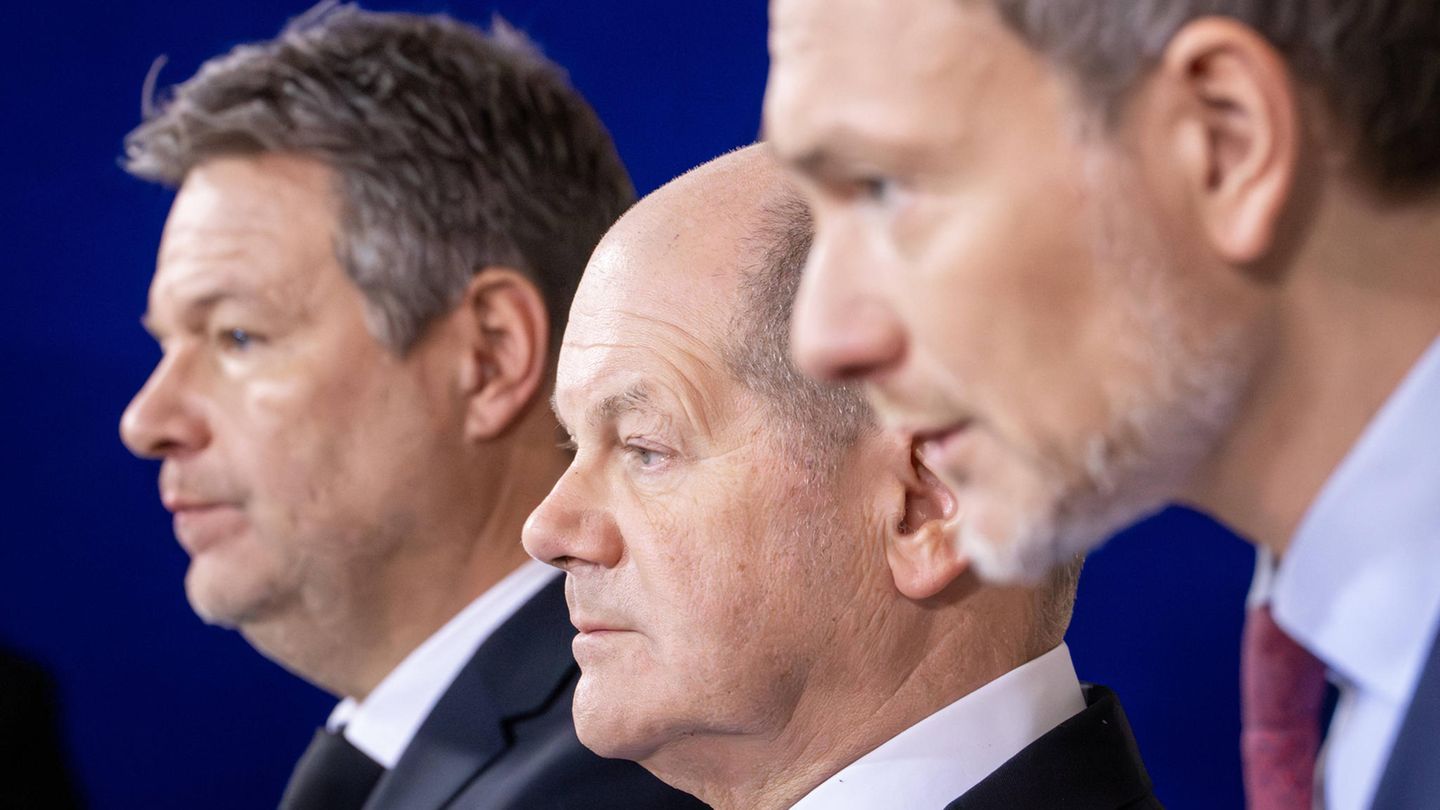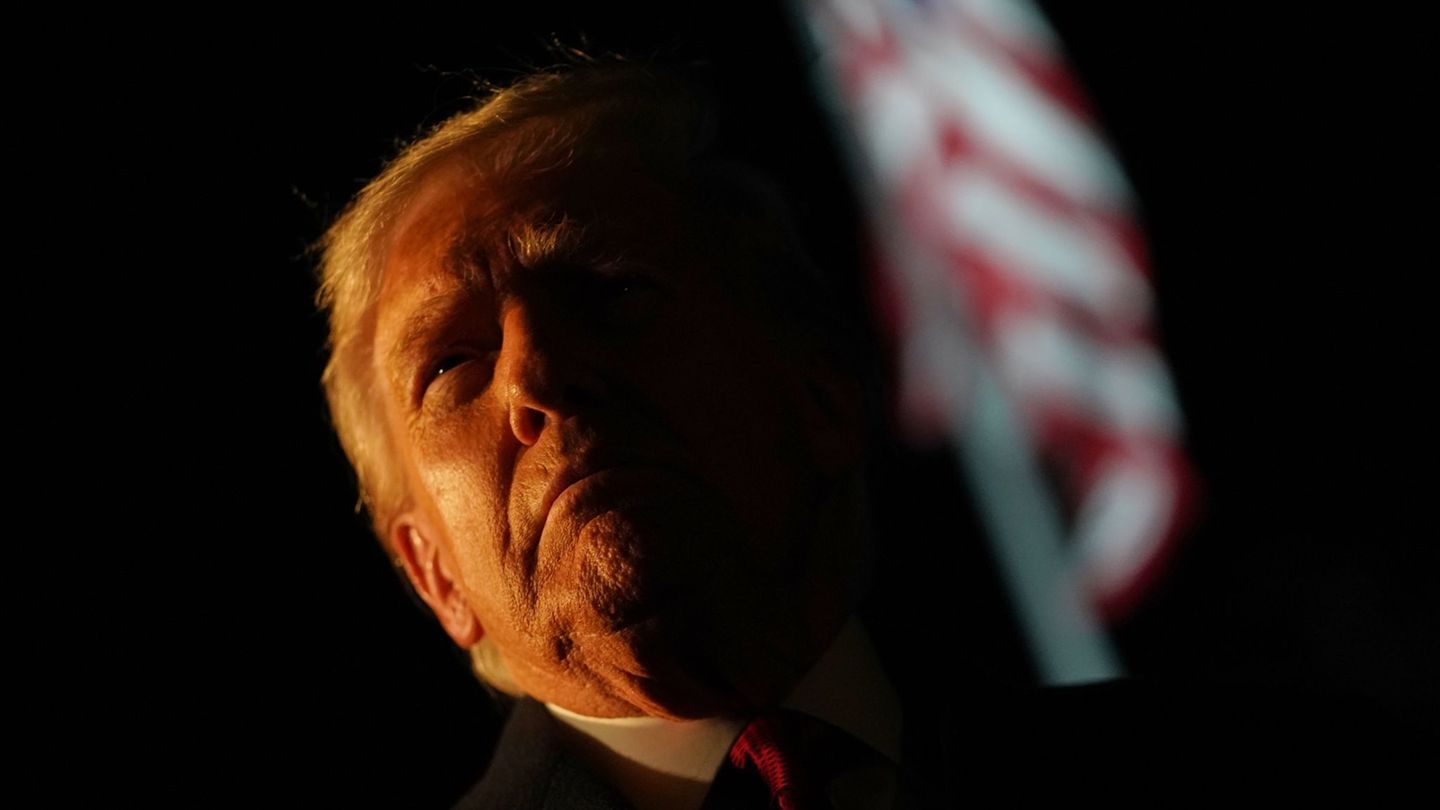Can this go well? Trouble is brewing in the traffic light coalition – in three ways. And now things are getting tricky for the federal government.
People in the rest of the country may not have noticed it, but in political Berlin things have been pleasantly quiet in recent weeks. Because of the holidays, the Bundestag took a longer break than usual between two weeks of sessions, and the government district was silent. The usual exchange of blows between the parties lacked its usual rhythm.
When the MPs return to Berlin this week, they will have a particularly intense time ahead of them. The Bundestag will be meeting in three of the next four weeks. The SPD, Greens and FDP have big plans. The budget is to be finalized by the beginning of July. At the same time, the coalition is wrangling over reforms to help the economy. And as if all that wasn’t complicated enough, European elections are also taking place at exactly this time, with predictably poor results for all coalition partners.
There is no question that fateful weeks are now ahead for the traffic light coalition. The only question is on which topic, in which round and at what point things will really go wrong. Pensions, budget, economic turnaround – the quick traffic light bang check.
Pensions are causing trouble – that’s for sure
The signs were actually pointing towards relaxation: Last week, Finance Minister Christian Lindner gave up his resistance. The second pension package was approved by the cabinet. It was about time. After all, Lindner had already agreed two months ago with Social Affairs Minister Hubertus Heil to secure the pension level of 48 percent until at least 2039. In return, the Social Democrat accepted the FDP’s idea of ”generational capital”, i.e. a credit-financed capital stock that is invested in shares and is intended to stabilize pension contributions.
At the time, Lindner sold the package as a success. And yet he prevented it from being passed in the cabinet for weeks – in order to drive out the budget ideas of his fellow ministers who did not want to stick to the agreed savings targets.
Only when Chancellor Olaf Scholz recently told his finance minister in an interview with star Lindner no longer saw any need to block what he believes to be the right thing to do. The FDP had “achieved more in the negotiations than was stated in the coalition agreement,” he said. So is the issue closed? Not at all. Because in the FDP parliamentary group they see things very differently from their party leader. Many there see the reform as not sustainable, let alone fair for all generations. The MPs do not want to wait for a third pension package, whenever that might come, no, they want to renegotiate properly in parliament now.
Pensions will continue to cause trouble, that much is certain. When? As soon as the European election campaign is over. Who? At the forefront, FDP vice-chairman and social politician Johannes Vogel will want to prove that he can achieve more than the vice-chancellor. Big bang? It will be the usual traffic light volume at first. But it has the potential for surprises. The more stubborn the FDP parliamentary group leadership is on pensions, the less willing the SPD and the Greens will be to accommodate the finance minister in his ideas for an “economic turnaround”. Lindner would have to win over his own people.
Traffic light already in close combat over the budget
Of course, a poor result in the EU elections could further destabilize the already fragile traffic light coalition. But could it also tip over? At least the SPD, which is looking ahead to election Sunday with some dismay, is not expecting that to happen. The 2025 budget is more of a headache. The fronts are hardened, and the coalition partners appear to be cemented in their positions.
On the one hand: Social Democrats and Greens, who are pushing for more investment, preferably through new loans. The motto is that those who save now will pay twice as much later. Debt brake? No thanks! On the other hand: The Liberals, who want to “consolidate” the state budget. So only money that is available should be spent – and spending should be prioritized accordingly. Or do we want to leave the next generation with ever-increasing mountains of debt?
Both may sound plausible, but they are clearly difficult to combine. Especially since a budget hole needs to be plugged, which some in Berlin claim is around 30 billion euros, while others claim it is less than 20 billion euros. Either way: if the money is mobilized from the available funds, someone will have to give in. And neither the Interior Ministry nor the Development Ministry, to name just two examples, are even remotely prepared to do so. Almost every week, leading traffic light politicians are putting new stakes in place to put pressure on the finance minister – who then reacts even more stubbornly. Whether there will be a blow-up in the budget is therefore not up for discussion. At most, who will turn up the volume even further.
The government wants to present a draft budget to parliament by July 3. Until then, the traffic light leaders (Chancellor Scholz, his deputy Robert Habeck and deputy Lindner) still have to clear up various knots in one-on-one talks with their cabinet colleagues. Budget politicians are therefore cautiously putting a question mark on the date. But it’s no use. If the government fails to reach agreement on a draft budget, it would drastically demonstrate how deep the divisions within the traffic light coalition are. After all, the budget forms the financial basis of what can still be expected politically from a coalition. All sides are also aware of what this means in reverse. Then things will really explode.
And what will become of the economic turnaround?
When it comes to the economic situation in Germany, Olaf Scholz has a clear line. The Chancellor does not like it when everything is bad-mouthed. And so last Sunday at an economic forum in Brandenburg, he praised the business conditions in eastern Germany. It is precisely in this region that real re-industrialization is currently taking place, said Scholz.
Lindner and Habeck are taking a different tone these days. They are stressing how urgently reforms are needed, now, immediately. Lindner wants an “economic turnaround”, wants to reduce bureaucracy, reform the labor market and ease the burden on companies. Economics Minister Habeck would also have nothing against relief; he too is calling for investments, but would prefer to finance them through a reform of the debt brake. This, however, is not possible with Lindner and the FDP. The negotiating situation is tricky, but not insoluble.
5-minute talk: The government paper that suddenly nobody wants to remember
05:19mins
The Chancellor is now making it clearer and clearer that he too does not seem to be completely opposed to a small “economic turnaround”, even if Scholz prefers to speak of a “dynamization package”. At the economic forum in Brandenburg, he explained that reforms are urgently needed to strengthen competitiveness. To this end, his government is working, among other things, to alleviate the shortage of skilled workers.
No, that doesn’t sound like a big deal. But nobody expects that from this government anyway, especially not in these difficult weeks.
Source: Stern
I have been working in the news industry for over 6 years, first as a reporter and now as an editor. I have covered politics extensively, and my work has appeared in major newspapers and online news outlets around the world. In addition to my writing, I also contribute regularly to 24 Hours World.




